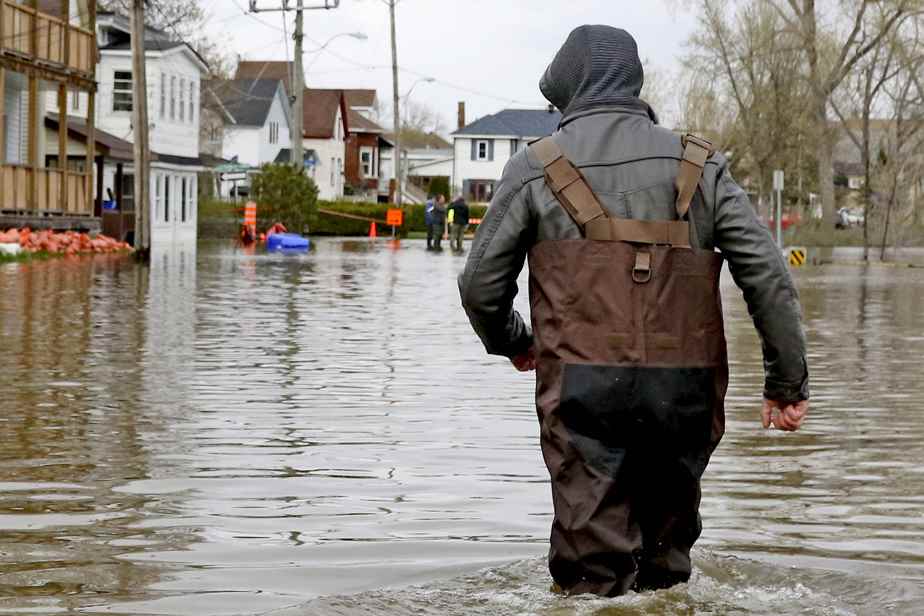The citizens in front of me represented a large part of the approximately 600 homes that had seen their basements flooded during two episodes of torrential rains.
Posted at 6:00 a.m.
They had been victims, in the same year, of two of the five worst rains of the last 100 years in Gatineau (this happened between the floods of 2017 and the tornado of 2018!). The evening was painful. As mayor, I couldn’t get out of it. Citizens were telling me that their houses were up to standard, that we should compensate them for their losses. I told them that the municipal infrastructures were also compliant, that we would not pay. No one was wrong.
Unfortunately yes, nobody was guilty, the problem was and still is the standards themselves: because of climate change, they no longer mean anything. So the citizens suffer and pay.
To adapt their infrastructures to climate change, and therefore to get out of current standards, Quebec cities would need, at the bare minimum, over the next five years, four billion dollars1. This does not include investments to reduce our GHG emissions. And this is only a first example of the fairly basic needs that municipalities are unable to meet for lack of resources, while Quebec can, it seems, afford to lower taxes.
In the world of municipal budgets, there are two killer numbers: 58 and 8. Cities manage 58% of public infrastructure (roads, libraries, parks, arenas, community centers, bike paths, sports facilities, etc.) , but they only receive 8% of the taxes you pay, all governments combined. This is the fundamental source of the huge maintenance deficit of our infrastructures.
For example, according to the Rivers Foundation, due to a lack of adequate infrastructure, the annual number of wastewater discharges into our rivers stood at 52,794 in 2020. You read that right: 52,794 wastewater discharges into our rivers in one year. Drinking water leaks amount to 20% or 30% of all water produced in many cities, especially large ones. The Quebec library network lacks the equivalent of 16 libraries the size of the Marc-Favreau library. Our entire social and economic development suffers. Our arenas are dilapidated. Need I say that our heritage is often abandoned?
Sooner or later, the Quebec government will have to help cities. This election escalation of tax cuts clearly tells us that he has the opportunity to do so now.
Inflation allows the Quebec government to collect more consumption taxes. An exceptionally low unemployment rate and the average increase in wages allow it to reap record sums of income tax. In Quebec, the coffers are overflowing.
The same causes cause the opposite effects in cities. Inflation (7.2%) increases municipal spending, rising wages (8% on average, so more than inflation!) also increases municipal spending. Additionally, cities have yet to recover from the collapse in public transit revenues caused by the pandemic, transit companies will face record deficits for several years to come. Meanwhile, property tax, their main source of income (70%), is moving very slowly. Rain or shine, the income it generates varies little.
As a result, this year and in the years to come, if cities want to maintain the same services, they will have to make cuts or continue to postpone indefinitely essential investments such as those immediately required by the efforts to fight climate change and adapt to it.
All the parties want to be “the party of the regions”. I hope they will quickly understand that the most powerful, fairest way to strengthen all regions is to financially consolidate municipalities and RCMs. It urges.
One last word. It is public spending that has allowed us to get out of this crisis. It is the financial capacity of the state that has allowed us to directly help businesses and people. The programs offered amounted to tens of thousands of dollars per month for companies and thousands per month for people.
When it comes to climate change, cities are at the forefront. When citizens have both feet in a flooded basement, they cannot be told forever that no one is responsible. Between putting a few tens of dollars more each month in the pockets of the taxpayers or better equipping 1100 towns and villages so that they can protect their citizens against natural disasters, it seems to me that the choice is simple.

